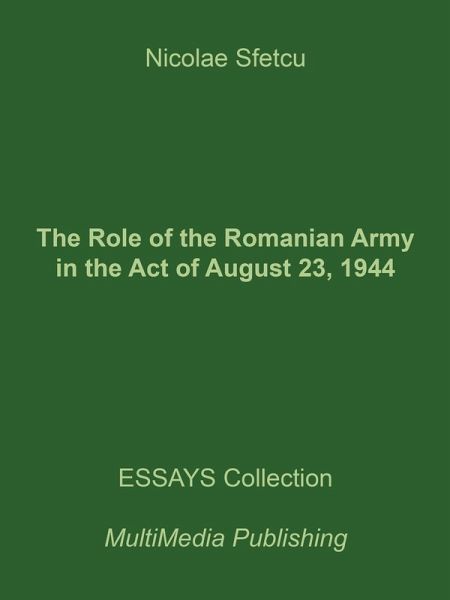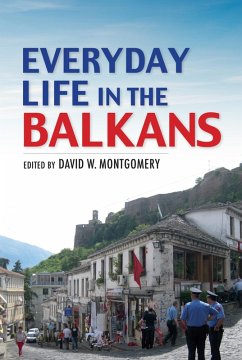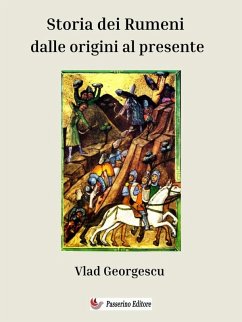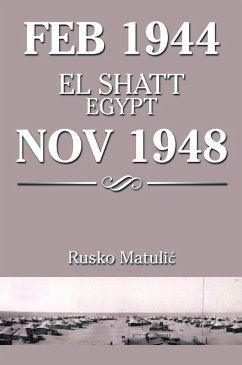
The Role of the Romanian Army in the Act of August 23, 1944 (eBook, ePUB)

PAYBACK Punkte
0 °P sammeln!
From the interwar period until the end of the Second World War, Romania was in a kind of geopolitical labyrinth, in which it seemed to have multiple possibilities, but they all went in the same direction: the alliance with Germany at the beginning of the Second World War, the act of August 23, 1944 as it stood, and the status subsequently established by the Treaty of Paris. Throughout this period, the Romanian Army played a major role through its leaders and the sacrifice of the Romanian soldiers, and the act of August 23, 1944 was a legitimate and legal act, in which King Mihai I and the Army...
From the interwar period until the end of the Second World War, Romania was in a kind of geopolitical labyrinth, in which it seemed to have multiple possibilities, but they all went in the same direction: the alliance with Germany at the beginning of the Second World War, the act of August 23, 1944 as it stood, and the status subsequently established by the Treaty of Paris. Throughout this period, the Romanian Army played a major role through its leaders and the sacrifice of the Romanian soldiers, and the act of August 23, 1944 was a legitimate and legal act, in which King Mihai I and the Army were the main decision makers. After a presentation of the context of Romania's entry into the Second World War, follows the description of Romania's evolution during the war, with emphasis on the attempts to conclude an armistice with the Western Allies and the role of the Army during this period. The act of August 23, 1944 is then detailed separately, highlighting the diversity of opinions on this event. The last section presents the implications of this act on Romania, after the end of the Second World War. CONTENTS: Abstract 1. The context of Romania's entry into the Second World War 2. Second World War 3. The act of August 23, 1944 4. Implications of the act of August 23, 1944 Bibliography Notes DOI: 10.13140/RG.2.2.31080.55040
Dieser Download kann aus rechtlichen Gründen nur mit Rechnungsadresse in A, B, CY, CZ, D, DK, EW, E, FIN, F, GR, H, IRL, I, LT, L, LR, M, NL, PL, P, R, S, SLO, SK ausgeliefert werden.













